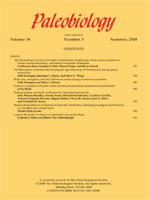
Pattern of growth rate around aperture and shell form in Bivalvia: a theoretical morphological study
No abstract available
